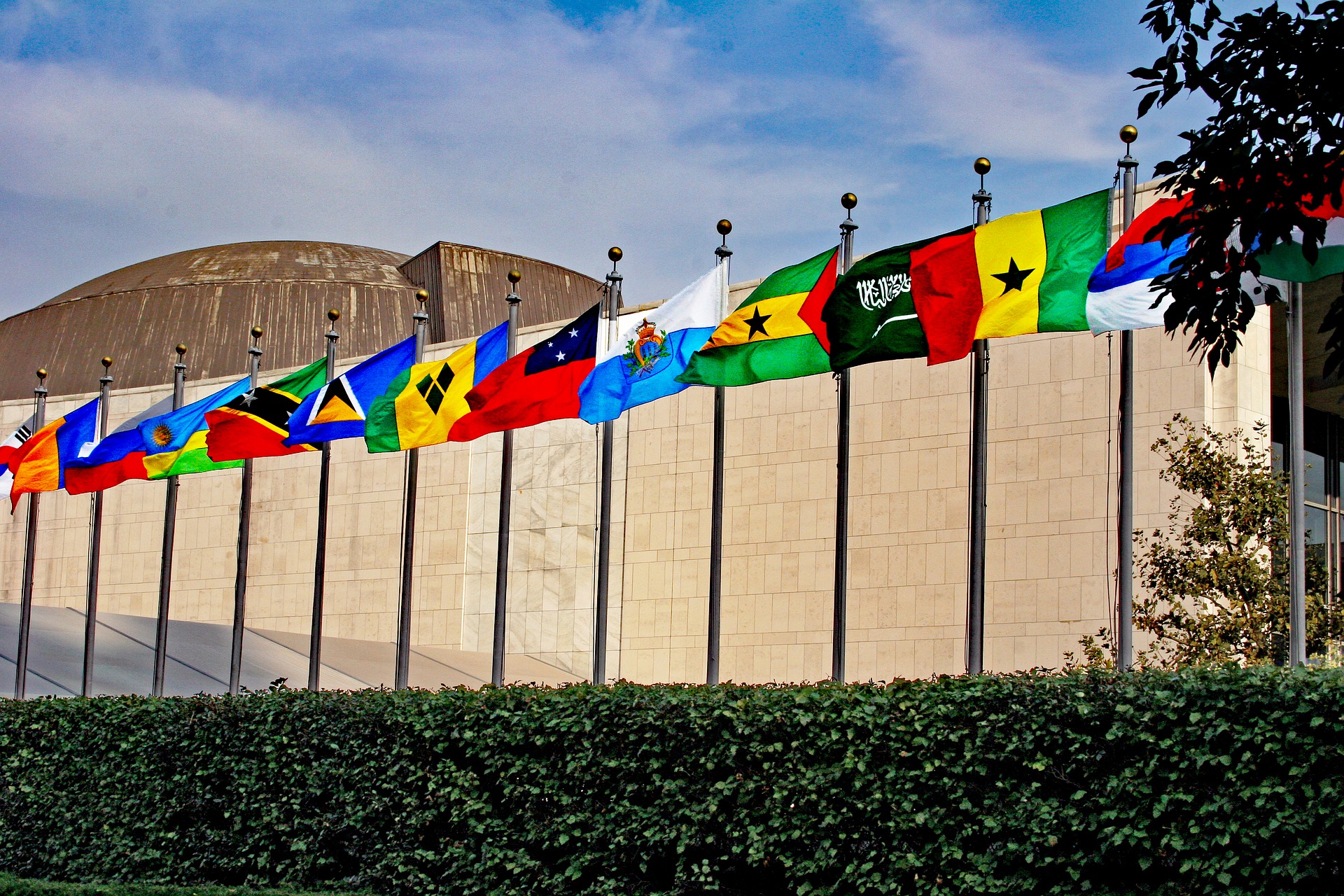
While Imperfect, the UN Plays a Critical Role in our World
For many, the existence of the United Nations is a simple fact of life, but of course, that wasn’t always the case.
The U.N.’s Charter officially came into action on October 24th, 1945, following months of careful debate among the Allied powers in the aftermath of World War II. By providing a forum and deliberative body for all nations, the members expected, the U.N. would prevent a re-emergence of the global tensions that drew much of the world into World War II. In doing so—according to Article 1 of the Charter—it would maintain international peace and security; develop friendly relations among nations; achieve international co-operation in solving international problems; promote respect for human rights; and harmonize the actions of nations in the attainment of these common ends.
Today, as we celebrate the 71st annual U.N. Day (a tradition that began in 1948), the world faces rising geopolitical tensions, economic instability, and conflict. Depending on one’s perspective, these circumstances signal the U.N.’s growing obsolescence and failure to adjust to a changing world; or, conversely, that the U.N. is more urgently needed now than at any moment since its founding. Below are three reasons why I believe the latter perspective is more reflective of reality.
- The U.N. structure remains the most effective channel for global collective action on the challenges that confront us all.
For example, the 2009 Paris Accord represented a significant triumph of collective action for people around the world as well as their governments and the U.N.: after years of grassroots action, lobbying, and negotiation, almost all of the organization’s 193 member states committed significant reductions in greenhouse gas emissions. The Accord remains an active, legitimate guiding force, with other nations continuing to fulfill their commitments.
More broadly, the U.N.’s global advocacy around the Millennium Development Goals, and the resources that were leveraged as a result, directly contributed to a precipitous decline in the world’s population living in extreme poverty from 36% in 1990 to 10% in 2015. While this achievement is the result of significant effort across non-governmental organizations, businesses, and governments, it has been the consistent and clear leadership of the U.N. that has kept the global conversation focused on the voices, challenges, and needs of people in poverty around the world.
More recently, the U.N. concluded a bottom-up prioritization process that has led to the establishment of a new set of global goals, the 17 Sustainable Development Goals, which represent a broader, yet no less urgent, set of priorities and goals to focus the attention and resources of the international community.
- The U.N. provides food and assistance to 91.4 million people in 83 countries around the globe, as well as protection to 71.4 million people fleeing war, famine, and persecution, among many others.
Without this ongoing support, the burden of care would fall directly on country governments, some of which are not prepared for such a charge. The U.N.’s work in this area prevents marginalized and vulnerable people from falling into a long term cycle of poverty. Looking forward, as instability continues to roil the world, the expertise and logistical capability of the U.N. in supporting people in these situations will be critical to their resilience and recovery.
- U.N. bodies such as the Security Council and Human Rights Council remain key arbiters and decision-makers whose resolutions carry weight in the eyes of the global public.
While close observers and even some ambassadors provide informed critiques of recent instances in which irresponsible actors have used them to shield themselves and their allies from accountability for violence and abuses of human rights, those critiques signal the need for bottom-up reform rather than wholesale decommissioning.
For example, Russia used its position as one of five permanent voting members on the U.N. Security Council to prevent the Council from condemning Bashar al-Assad’s use of chemical weapons on his own citizens. Why? Because that condemnation still matters in the eyes of the world, and because such a condemnation would help defenders of human rights from building an effective diplomatic coalition of nations committed to pressuring Assad and supporting an accountable government in Syria.
When abusers get control of the system through legitimate means, it saps the legitimacy of the Council, but it doesn’t justify the demolition of these structures. We will need them in the coming years as instability and conflict continue to grow, and there are no legitimate global alternatives, at least not at the moment.
What do you think the U.N. does well, and how can it be improved? Are there other structures that are legitimate arbiters of key international debates and disagreements? What reforms are needed to ensure the U.N. represents people and their interests instead of simply the powerful and influential?








